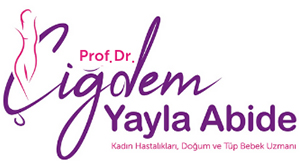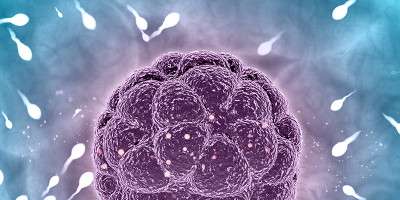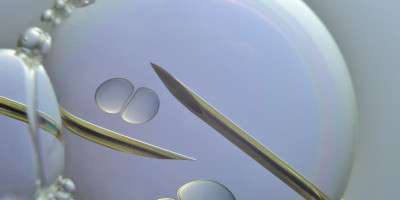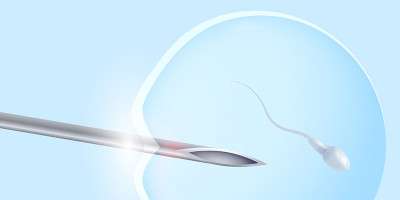Failure to achieve pregnancy in at least 3 IVF applications or failure to achieve pregnancy despite the transfer of 10 or more embryos is called ‘recurrent IVF failure’. However, considering the developing technology, today we are talking about recurrent failure when pregnancy is not achieved despite the transfer of 5 or more cleavage stage (2nd or 3rd stage) or 3 or more blastocyst stage embryos.
Why Does IVF Failure Happen?
If we list the reasons as embryo-related, female-related and male-related;
Embryo Quality
- Problems in the genetic structure of the embryo
(The woman's age is one of the most important factors. The woman's age affects the quality of the egg and therefore the quality of the embryo formed by the fertilized egg. Sperm quality is also important.) Creating a good embryo quality is only possible with a good laboratory and a good embryologist. - Inadequate culture environment in which the embryo develops
- Thickness of the outer membrane of the embryo
Reasons Related to the Woman
- Pathologies Related to the Uterus;
- Septum in the Uterus,
- Polyp in the Uterus,
- Myoma in the Uterus,
- Adhesions in the Uterus (Formed Due to Previous Interventions or Past Infection) Affect the Attachment of the Baby and Reduce the Success of IVF.
- Pathologies Related to the Tubes;
- Fluid accumulation in the tubes called hydrosalpinx (increases the rates of miscarriage and ectopic pregnancy in pregnancy and reduces the success in IVF)
- Endometriosis can also cause recurrent miscarriages.
What Should Be Done in Cases of Fluid Accumulation in the Tubes Before Treatment?
The tubes filled with fluid should be removed with surgery or the part towards the uterus should be blocked (blockage can also be done hysteroscopically).
- Apart from these, immunological tests or tests related to coagulation are recommended. Some genetic factors are thought to be effective, but there is no proven genetic sequence. Since the ERA test is not generally accepted, it is not applied.
- Regarding the treatment; inappropriate drug protocols used during egg development
Male-Related Reasons
The benefit of an additional test other than routine spermiogram has not been proven (such as sperm DNA fragmentation test, chromosome test in sperm)
What Should Be Done in Case of Recurrent IVF Failure?
There are some treatments on the market that have not yet been proven to be effective. However, since their effectiveness has not been proven, it may be better not to apply them. So what are these;
- Treatments for the inner layer of the uterus: Scraping the inside of the uterus, immune system strengthening treatments, steroid use, pregnancy vaccine, blood thinning treatments, washing the inside of the uterus with G-CSG, etc.
- Some drugs that stimulate the ovaries; Androgens (DHEA-S; these can cause acne and oiliness on the skin), steroids, vitamins, acupuncture, drugs containing inositol, those containing omega-3…
- The effectiveness of those other than growth hormone has not been shown.
- Transferring frozen embryos: Freezing embryos instead of fresh ones, then leaving them in the uterus for a resting period and then thawing them. Some studies say that it increases the chance of IVF success.
- Scraping the uterus: This method, which was previously believed to be effective, is no longer thought to be effective.
- PGS/PGT (Pregenetic diagnosis): There is no consensus on whether selecting an embryo that is thought to have no anomalies and administering it into the uterus is also effective.
- The effectiveness of assisted hatching (scraping the outside of the embryo, splitting it) is still debatable.
- Adding other substances to culture fluids (such as GC-CSF); its effectiveness is not clear.
- Adding some substances called embryo glue (hyaluronic acid…) during embryo transfer: its benefit has not been proven.
- Mitochondrial scoring: In the PGT sample, mitochondrial scoring is examined in trophoblasts. Its effectiveness is not clear.
- Since the benefit of all these treatment methods has not been proven, if we think that they are not beneficial, what needs to be done is to apply a ‘personalized treatment approach’.
- First, we should re-evaluate the couples, investigate the underlying cause, and if no reason is found, I recommend that we shape our new treatment according to the previous treatment and start a new IVF treatment.
What Can Be Done to Increase IVF Success?
Egg quality decreases with advancing age, this decrease is clearly seen over the age of 35. We can say, ‘Time has no favors’ then. We cannot prevent this situation, but it is possible to have a positive effect on egg quality with lifestyle changes. So what should we do for this;
- We should not smoke, we should stay away from environments where smoking takes place.
- We should maintain a healthy weight because being fit can have a positive effect on our body and ovaries by reducing oxidative stress substances.
- We should have a healthy and balanced diet, especially stay away from processed foods and not consume too much carbohydrates.
- The most difficult thing is; We should try to reduce the stress in our lives; Stress is an important factor. The negative results of the treatment started with great hopes are financially and spiritually exhausting for couples. Considering the psychological pressures coming from the environment, couples may need psychological support.
Frequently Asked Questions About IVF
Should hysteroscopy be performed in case of repeated IVF failure?
Hysteroscopy is important for diagnosing chronic endometritis and for the success of treatment, and we recommend that it be performed.
You have a chocolate cyst and your ovarian reserve is low, what should you do?
We definitely do not recommend surgery. If you are married, we recommend IVF, if you are single, we recommend egg freezing.
"If you have severe pain or a risk of cancer, our recommendation is to freeze your eggs first or freeze your embryos with IVF treatment. Then we prefer to perform your surgery. In this case, we postpone your embryo transfer to a suitable time after the surgery."
Is there a treatment for azoospermia?
When you see a doctor who is experienced in IVF for our male patients with azoospermia, they will tell you that it is possible to find sperm with microsurgical procedures such as TESE, which we use in IVF. The experience of the surgeon and laboratory conditions are very important here.
Can IVF be performed on women over the age of 45 who have entered menopause?
If our prospective mother has not entered menopause and sees follicles on ultrasound, we can perform IVF treatment. Again, in this case, our recommendation is genetically diagnosed IVF.







